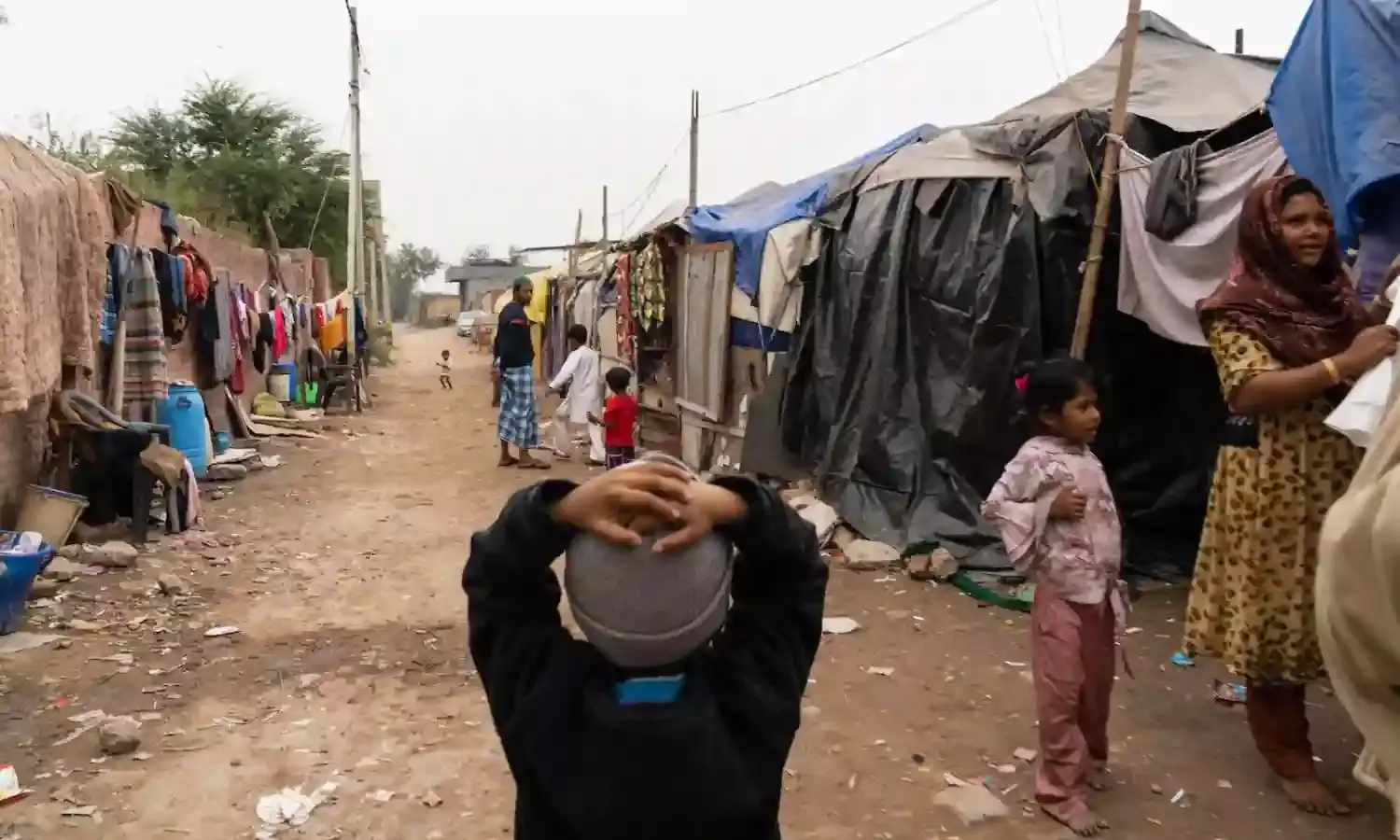After the Fire: Myanmar Refugees in New Delhi
'Even if we wanted to go away, we have no place to go to'

Refugees from Myanmar living in Madanpur Khadar, New Delhi are still hard hit by the fire that broke out here last June.
Around 250 people in 50 families have lived here since arriving in Delhi ten years ago. Their camp has been burnt down twice - once in 2018, and again in 2021. They do not have the resources to bear the drastic winters in comfort as the fires burnt everything in their possession. They feel growing fear and insecurity after the recent burning of a camp in Haryana for refugees of the Myanmar genocide.
When the first fire broke out in 2018, they were living on land provided by the Zakat Foundation of India. The fire burnt their camp down so they were relocated to an adjacent piece of land owned by the UP irrigation department. They have been living here in shanties since, trying to make ends meet.
Ever since the first fire broke out in 2018 the question one keeps asking is, how do these fires start? Is there someone responsible for these fires or are they just accidents?
While the police investigation was still underway an individual assumed responsibility for the fire, and many others that had broken out in Rohingya settlements throughout Delhi, on Twitter. He tweeted, “If they don’t go back soon we send them back in coffin jai shri ram,” and “Yes we did. And we do again #ROHINGYAQUITINDIA”.
In June 2021 when the second fire broke out, camp residents say it started from a house that was empty at the time. Earlier that evening, unknown people had visited the area and had threatened them with consequences if they didn’t leave. But they had no place to go and with the constant discrimination and hatred they face, they overlooked the threat.
“A few people came to us that evening around 5:30pm and threatened us to vacate the area, or else we will face consequences,” says refugee resident Jaffar Hussain. “We are poor people, we have nowhere to go. Even if we wanted to go away, we have no place to go to.”
Most people in the Madanpur Khadar camp work in the informalised sector for a daily wage. The men do menial jobs and the women work as household helps in nearby areas. Since Covid first struck they have been deprived of jobs. Two years later they are still deprived of the means to feed themselves, and depend on donations or aid from individuals and organisations concerned about their wellbeing.
After the second fire in June 2021, the refugees from Myanmar were shifted back to the Zakat Foundation land where they lived earlier. Temporary camps were set up for emergency aid by the Delhi government. These were confined to a small area, the tents cheek by jowl, devoid of proper ventilation, drainage or sanitation. Now this camp has become their permanent shelter.
The government hasn’t relocated them or made any promises, people continue to threaten them and do not employ them, and their children continue to suffer. “Our children can’t study. All the books they had, their uniforms, their toys, everything got burnt in the fire,” says camp resident Hilaluddin.
In a 2018 ruling the Supreme Court agreed that Article 21 of the Constitution (the right to life and liberty) must be enforced for Rohingya refugees as well, and the state must ensure their access to all basic needs including food, clean water, sanitation, healthcare, shelter, education etc. It charged two subdivisional magistrates with ensuring their needs were met.
“We had submitted two representations to the SDMs, in 2020 and 2021, in relation to Covid19 and the state of these camps during the pandemic. The refugees went jobless. They had no resources to sustain themselves. Neither was any testing being done at the camp, nor was any aid being provided to these refugees. The authorities have not acted upon our representations yet,” says a lawyer and social activist working with the UNHCR.
Meanwhile the refugees from Myanmar continue to struggle as they have no warm clothes for winter, no blankets to suffice all the family members, and no beds to sleep on. Aid has also plummeted because police officials posted at the campsite ask for identity proof from anyone visiting. This has scared off locals from helping them, reducing the resources at their disposal. There is filth all round and children and adults with health problems have to live and suffer here.
When asked why the police officials were asking for identity proof, an official said it was by order of the SDM.
As water is supplied only once a day for a limited duration, and there were no provisions to safeguard them from the winter winds, the refugees are uncertain about the duration of their stay on this piece of land. They face constant threats and discrimination, and have nowhere to go and no one to look to for aid. They collectively request the government to pay heed to their needs and help them find a clean and safe place to live and enjoy the qualities of a citizen, in practice, not mere paper.



